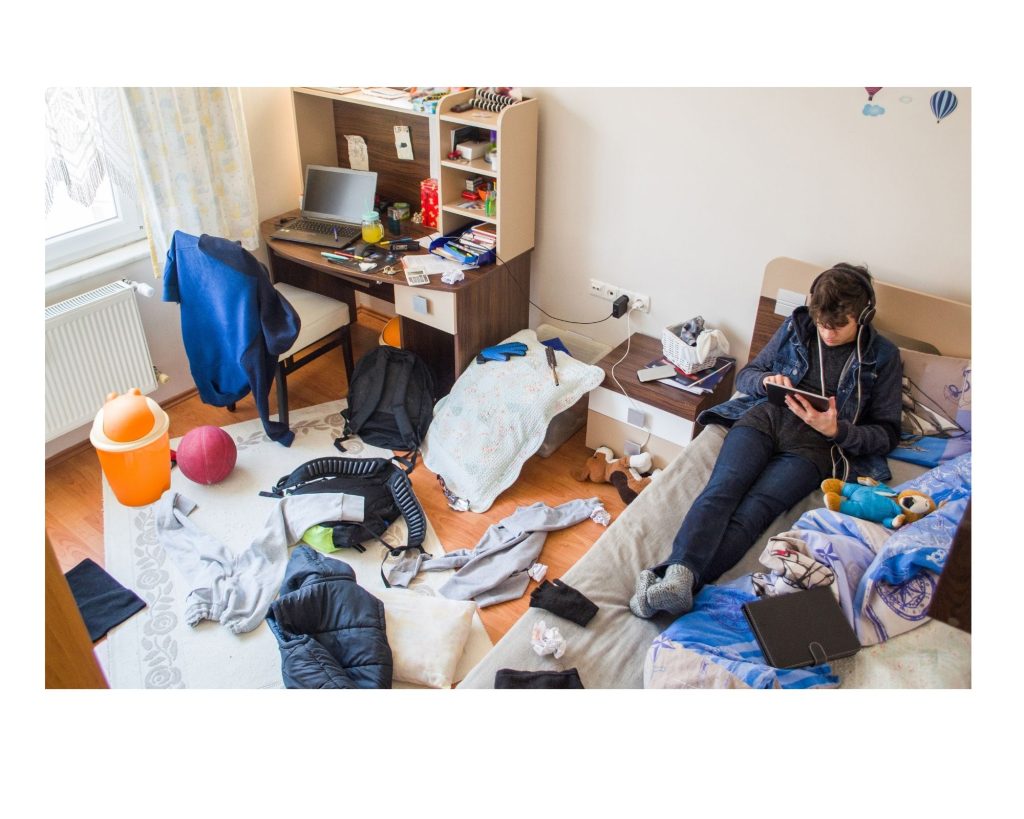Beauty’s in the Eye of the Beholder – How to Help Your Teen Get Past Thinking They Are Ugly

Photo by Alexander Jawfox on Unsplash
A parent was saying the other day “my daughter thinks she’s ugly and thinks when I say she’s not that I have to say that as her mom”. I thought to myself-
“Ooohh this one hits home”
As I teen, I was so self conscious about my “puffy” (curly) hair and acne ridden forehead. There was one kid in my class that used to tell me how bad my forehead looked on a regular and I let it make me feel terrible.
I would flip through magazines and see examples of beauty in the form of flawless skin, silky hair, and long lean bodies. I had none of these and quickly internalized messages about my physical appearance.
“My eyes are too big”
“My hair is ugly”
“My face is ugly”
There were moments I looked in the mirror and saw glimpses of beauty but that was quickly replaced by judgemental self-talk and a harsh inner critic.
Being a teen is hard. Looking in the mirror can be like holding up a magnifying glass over each imperfection and thinking it is out there for the whole world to see.
Mamas if you want to help your teen see their unique beauty by boosting their confidence and self-love, here are some things to consider.

Photo by Jonatas Domingos on Unsplash
Explore the Way
Your first instinct might be to rescue and say something like “if only you could see what I see” or “but you’re beautiful!”. While these are coming from a heart centered place, these comments may be met with rejection (you’re lying) or dismissal (you need to say that!). Approach your teen’s comments from a place of curiosity and empathy. Be curious about why your teen thinks she’s ugly. What does she see? What doesn’t she like? How is she seeing herself? Where did she get that idea of beauty? This will give you a pulse on some of her inner world which serves two fold:
1. An understanding of your daughter’s experience
2. An opportunity to model empathy
The more you listen as a parent, the more you understand. Teens want to be understood and heard – I mean isn’t that what we all want?
Empathy, as explained by Brene Brown is: “Connecting with a person so they know they’re not alone, by connecting to the emotion they are experiencing.”
As Brene highlights, you don’t have to have experienced the same situation they are going through but I’ll bet many of you (like me) have similar experiences.
The 4 pillars of empathy are:
1. Perspective taking
2. Staying out of judgment
3. Recognizing emotions
4. Communication
(You can learn more about the 4 pillars here.)
An empathetic response could sound something like “it’s not easy to be a teen”, “I remember feeling really critical of my body, still am sometimes, I’m sorry you’re struggling right now”, or “I wish I could do something to take away the pain, I’m here to talk if you need”.

Photo by Omar Lopez on Unsplash
Defining Beautiful
I was listening to my Teen Wisdom Fundamentals course (thanks Tami!) and there was a part on getting clearer with teens about their definition of things. This really stood out to me as something that I could start doing more of. For example, when a teen says they want to be happy, what is their definition of happy? I’ve heard things like “having lots of friends”, “feeling good when I wake up”, “having a boyfriend”.
What is the definition of beautiful? What is your teen’s definition of beautiful? One definition that I came across is “possessing qualities that give great pleasure or satisfaction to the senses such as what we see, feel, hear, think etc.” What do you think of this? Where did you get messages and information about what beautiful meant?
The documentary Beauty CULTure (2012) covers some thought provoking ground when it comes to beauty in western society.

Photo by Kate Hliznitsova on Unsplash
Role Models
Does your teen spend hours on social media? If your teen is scrolling Instagram or other photo based social media, they are not alone. Research has shown there is a link between our interaction with social media and our negative view of our body. (You can read more here.) The more we do the scroll and compare, the worse our view of our body becomes.
Having role models around beauty is critical for teens. These can be celebrities that look like them, adults in their lives who model self-love and healthy interactions with their body, and peers who are confident and self-compassionate.

Photo by Charisse Kenion on Unsplash
Hold a Critical Lens
Societal and cultural norms are constantly feeding us messaging about beauty through channels such as social media. The message is often some form of “you are NOT enough”. Not enough beauty, not enough money, not enough friends, not enough smarts etc. Your teen may not be fond of the fact that a bunch of adults with a lot of money are dictating how they feel about themselves.
This is where the critical lens comes in. You could look at any advertising message out there around beauty and do one of 3 things: accept it, reject it, or change it.
Invite your teen to stop the scroll (sometimes… let’s real about this also). To pause when they are fed an image of beauty or a message of not good enough. To stop, pause, and ask themselves:
Do I accept this message?
Is this what I agree with?
Does this seem off to me?
Is this what I think describes me?
What I think describes other girls (boys, other identifying genders)?
What’s missing?
How is this message generalizing/sexist/racist/prejudice?
Who else believes this?
What do I believe?
By using a critical lens and not just letting rich marketing companies dictate your beliefs around beauty, you can empower your teens and see real change.

Photo by Erin Minuskin on Unsplash
3 Things You Can Do to Support Your Teen on Their Journey With Beauty
1. Download our Body Image Tips document
2. Bring gratitude and appreciation of your bodies (yes yours also!) capacities to the forefront (rock a new outfit, take a picture that makes you feel beautiful, post an inspirational self-love quote on your mirror, etc.)
3. Indulge in some extra special treatment together (a spa date, going for a hike, a massage, etc.)
I came across this saying “Butterflies can’t see the beauty in their wings” but it doesn’t stop the world from appreciating them. Your teen illuminates the world with their gifts and if they need some help to see that, send me an email or a text with the “contact me” button below.
Love,
Chantal

Chantal Côté (she/her) is a psychologist and teen life coach living in Calgary, Alberta. After over a decade in non-profit and community mental health, Chantal started Pyramid Psychology, a practice dedicated to supporting teens – a population she is constantly amazed by. Chantal is on a mission to help 100,000 teen girls (and their parents) build bulletproof mindsets so they can weather the ups and downs of life. As part of this goal, Chantal has had the privilege of speaking at various events – virtual and live – to support teens and parents.
Outside of this passion, Chantal is often in nature, writing poetry, playing ball hockey and hanging out with her loved ones.
Each week, Chantal writes a blog article in response to issues she hears from the parents and teens she connects with.
If you have something you’d like to read more on – email ideas and questions to info@pyramidpsychology.com or DM us via Instagram or Facebook.






















 Chantal Côté (she/her) is a psychologist and teen life coach living in Calgary, Alberta. After over a decade in non-profit and community mental health, Chantal started
Chantal Côté (she/her) is a psychologist and teen life coach living in Calgary, Alberta. After over a decade in non-profit and community mental health, Chantal started 

































